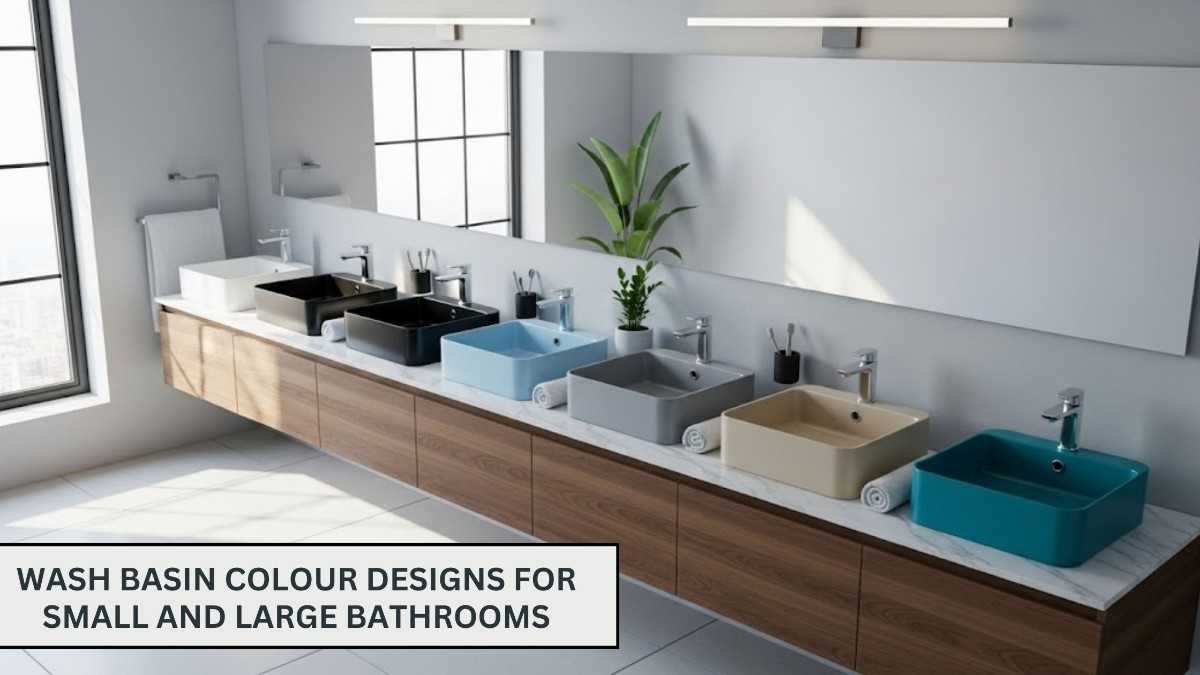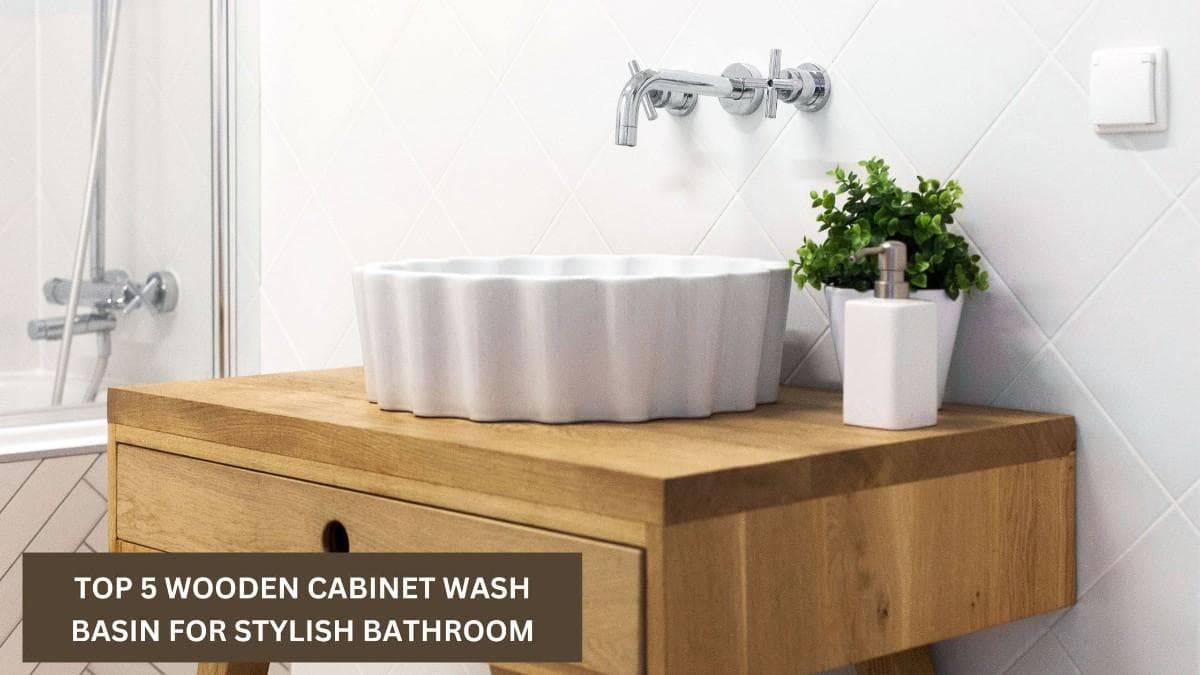How to Choose The Right Thickness of Your Tiles? Complete Guide
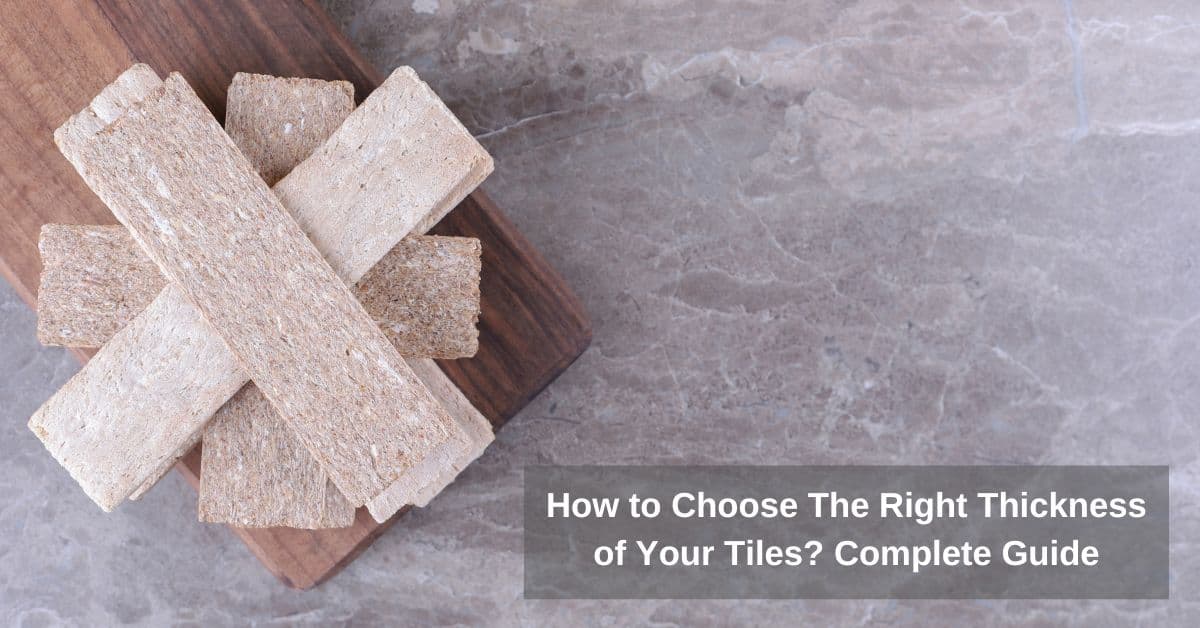
Choosing the right tile thickness is crucial for both aesthetics and functionality. The right thickness ensures durability and enhances your home's overall design. Whether you're renovating your bathroom or living room, understanding tile thickness is key to making informed decisions. Let's explore the factors to consider when selecting the perfect tile thickness.
Understanding Tile Thickness in mm and Why It Matters?
Tile Thickness in mm is a small number that counts in a big way. Standard tile thickness ranges from 5mm to 15mm, varying with the tile are intended use, whether its for walls, floors, or specific spaces. The appropriate choice of thickness not only gives strength to your tiles but also the perfect look and feel for your home.
Generally, thinner tiles, around 5–7mm, work best for wall applications because they are light and easy to install. Thicker tiles, usually between 10mm and 15mm, are better suited for flooring, where they endure constant pressure and wear. Simpolo Tiles and Bathware offers a wide range of tiles with varying thicknesses, ensuring the perfect fit for every space — from elegant living rooms to durable outdoor areas. For example, natural terracotta tiles add earthy charm while maintaining optimal strength, making them ideal for both rustic interiors and open spaces.
Wall vs. Floor Tiles: Why Thickness Matters for Each?
Wall Tiles
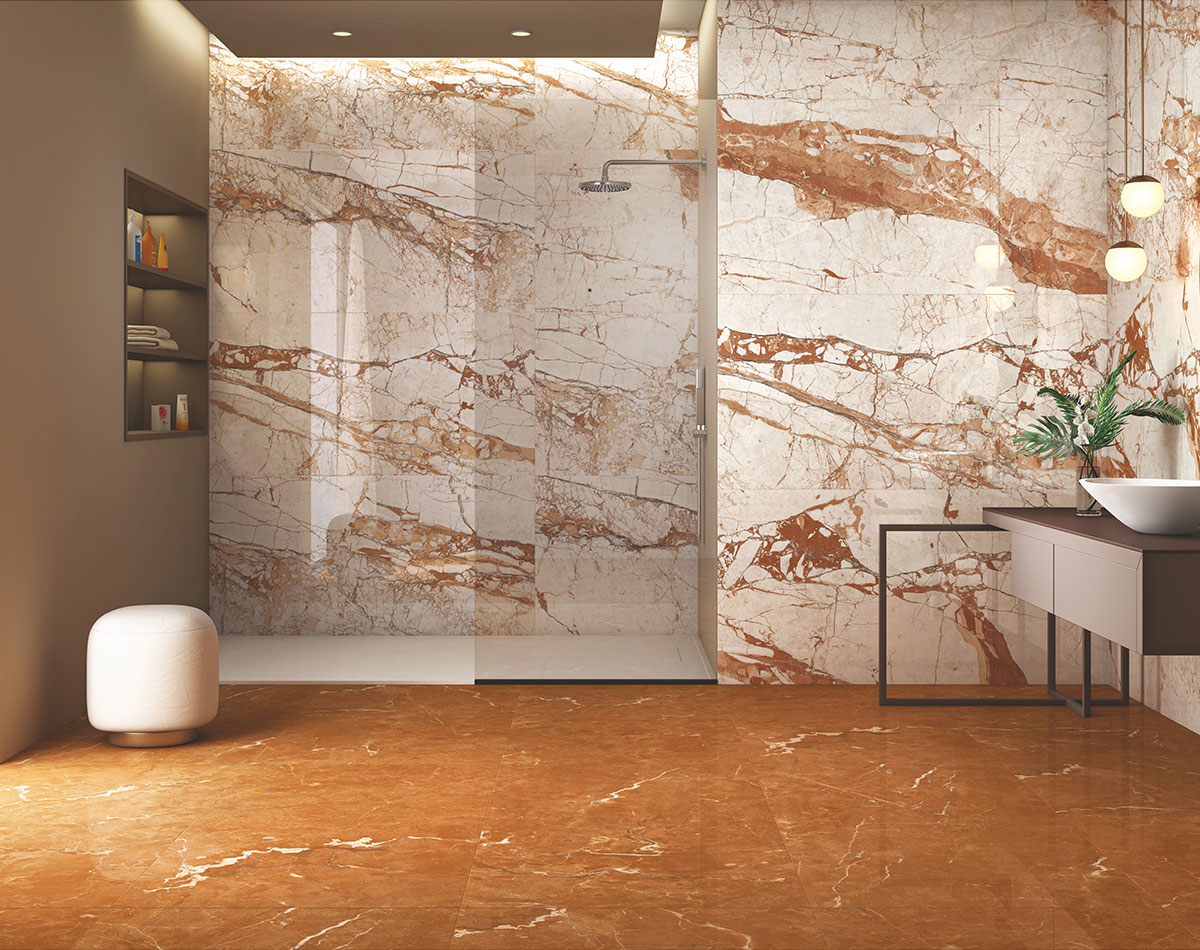
For walls, thinner tiles are generally more suitable. These wall tiles range from 5mm to 10mm in thickness and are often used in bathrooms, kitchens, and living rooms. Ceramic and vitrified tiles are popular for walls because they are lightweight and versatile. Our Ricco 2.0 series offers the right balance of thickness and design, featuring tiles that are both eye-catching and practical for indoor spaces. These tiles also include glossy finishes, adding a reflective quality that can brighten up any room.
Floor Tiles
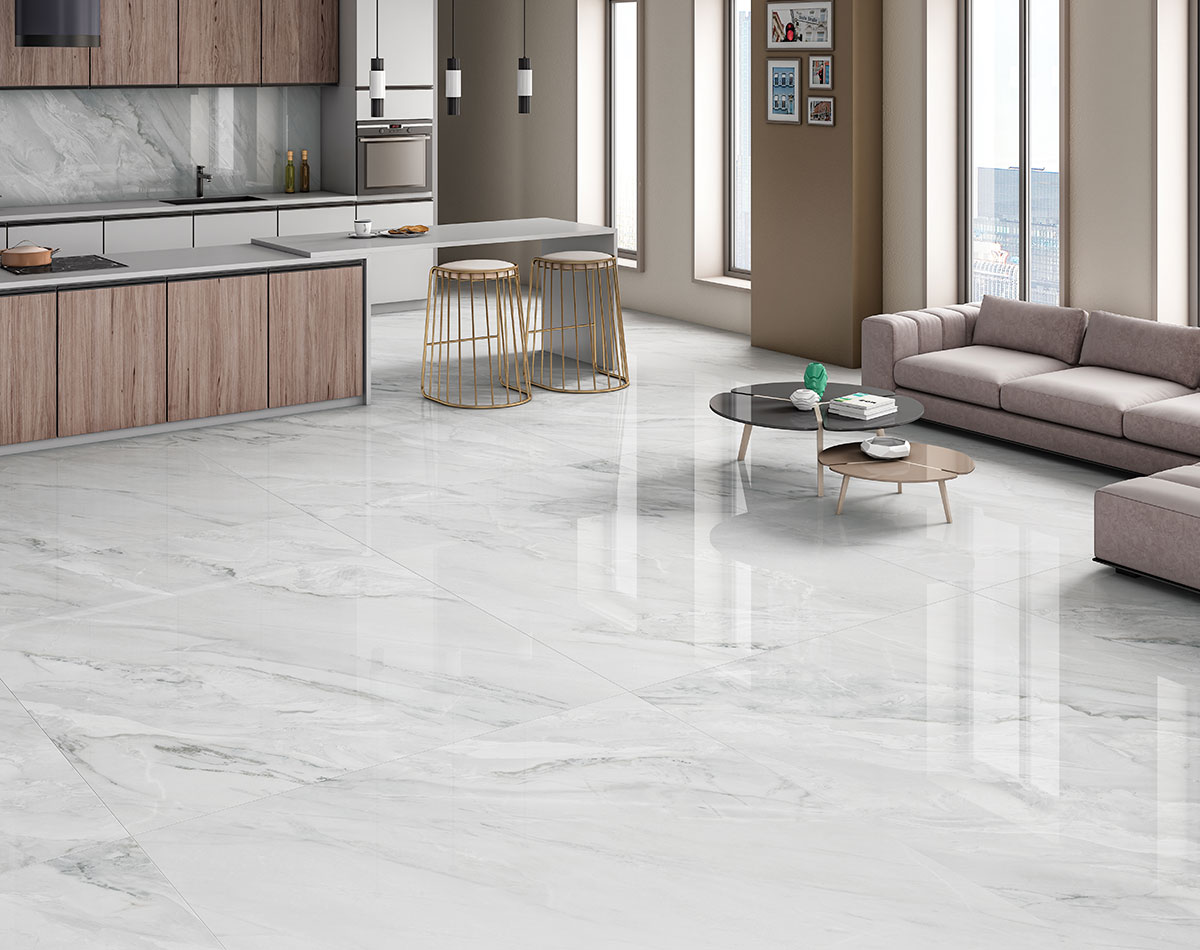
Floor tiles require a greater focus on durability. The best thickness for residential flooring is around 10mm to 12mm. However, high-traffic areas such as living rooms or hallways might benefit from floor tiles that are closer to 15mm thick. Porcelain and vitrified tiles are particularly well-suited for floors because of their resistance to wear and tear. Our Marquina or Salted Concrete Rust series is built for strength, presenting a higher thickness that can fit in both home and commercial places.
Related Read: Ceramic vs Vitrified Tiles: Best Flooring for Your Home
Why Tile Thickness Affects Durability and Performance
Tiles, when fired at a higher temperature with silica, quartz, and more, form vitrified tiles. The greater the thickness of tiles, the higher their durability. Thicker tiles absorb and distribute impact more effectively due to their heavier material. These tiles can resist bending under pressure. Thicker tiles bridge small gaps more effectively, resulting in a flat and solid surface. The thicker tiles can also maintain integrity and appearance for a longer period of time. They resist cracks better than thin tiles, as thin tiles are also prone to damage in heavy traffic areas. Thickness plays a crucial role as it affects both durability and performance. Opt for tiles that fit all criteria to elevate your space. For long-lasting performance and superior strength, full body tiles are also an excellent choice — they’re highly durable, scratch-resistant, and perfect for high-footfall areas.
Related Post : 7 Best Bedroom Wall Colour Combinations for a Cozy, Stylish Room
Comparing Different Tile Materials and Their Thickness
Tiles are made of different materials, which also affects their thickness. Find various types of tiles and tile thicknesses-
- Ceramic Tiles: These tiles come in various patterns and surfaces suitable for floors and walls, but they have higher water absorption. Less durable and can be rough. More appropriate for indoor use, as these tiles are porous. The thickness range for ceramic tiles is 6mm to 10mm.
- Vitrified Tiles: Constructed at a higher temperature from silica, quartz, and other materials, known for durability, less water absorption, scratch-resistance, and can mimic stone and marble. It can be used in-house and in high-traffic areas for floors and walls for a clean and aesthetic look. Simpolo offers vitrified tiles with a thickness range from 5mm to 20mm.
- Porcelain Tiles: Tiles with higher durability, water resistance, and scratch resistance properties, but are expensive. The thickness of these porcelain tiles ranges from 6mm to 12mm and can be used in kitchens, hallways, and big spaces.
- Stone Tiles: The tiles that mimic stone and are costlier but more durable. Suitable for both outdoor and indoor use on walls, floors, and even on elevated surfaces. Our stone-look tiles come in different designs and colours for a sharper look. The thickness of tiles ranges from 10mm to 20mm, generally used for countertops, feature walls, and floors.
Related Read: 20 Tips to Choose the Right Tiles for Hallway Floors
Factors to Consider When Choosing Tile Thickness
- Structural Integrity: Thicker tiles are essential for high-traffic areas and for flooring to avoid cracking.
- Installation Surface: Heavier tiles require strong adhesives and a level surface for secure installation.
- Design Compatibility: Tile thickness can influence the room are aesthetic and transition between different flooring types.
- Insulation Properties: Thicker tiles provide better insulation for sound and temperature control, especially on floors without heating systems.
- Cost and Installation: While offering durability, thicker tiles can increase both material and labor costs due to their weight and complexity in handling.
- Maintenance and Replacement: Durable thick tiles are easier to maintain and withstand repairs, though they might be harder to replace if needed.
- Underfloor Heating Efficiency: Thinner tiles (around 5mm to 7mm) are more efficient in conducting heat and work better with underfloor heating systems.
Related Read: Tile vs Granite Flooring: Which is More Durable and Cost-Effective?



